
Exciting new series on “Voice, Body and Movement for Lawyers – How to connect with the jury and find Justice Through Dramatic Technique!”
Click here to find out more
Allegations of sexual abuse often come years after the abuse was alleged to have happened. In these cases, the memories of the outcrier and others are often the only evidence in the case. An understanding of the reconstructive nature of human memory becomes paramount in defending such allegations.
This seminar will briefly explore how human memory works, and more importantly how it doesn't work. Research studies will be reviewed which establish that memories can easily be created or distorted when retrieved at long delays. Applications to several real-world delayed outcry cases will also be discussed as examples.
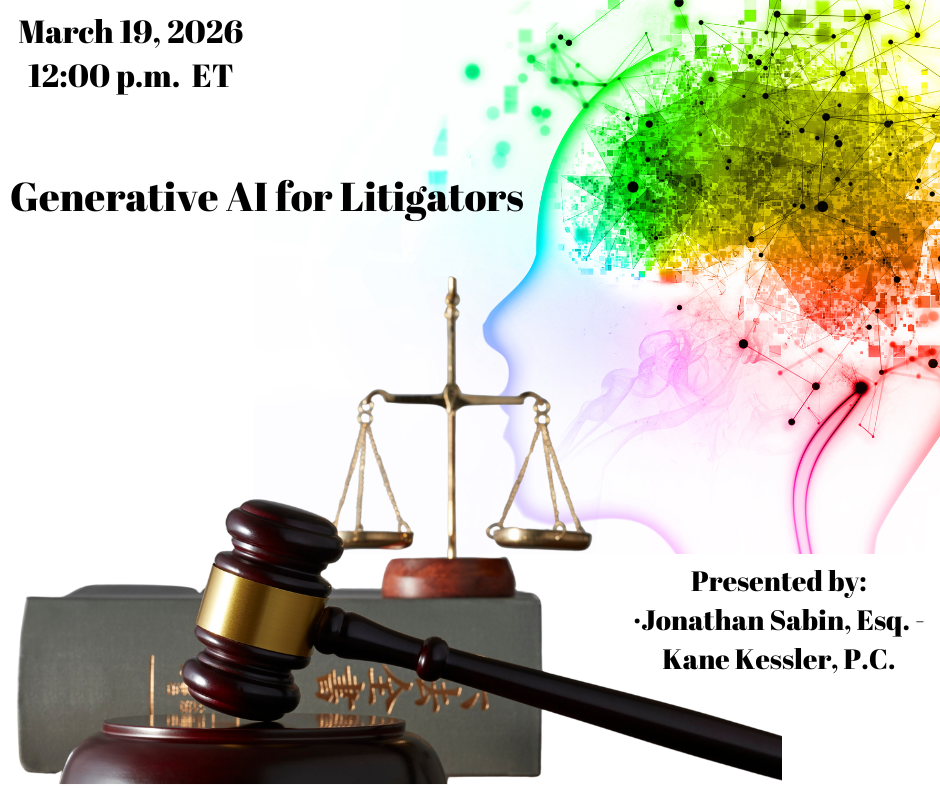
Explore the transformative potential of generative AI in modern litigation. “Generative AI for...
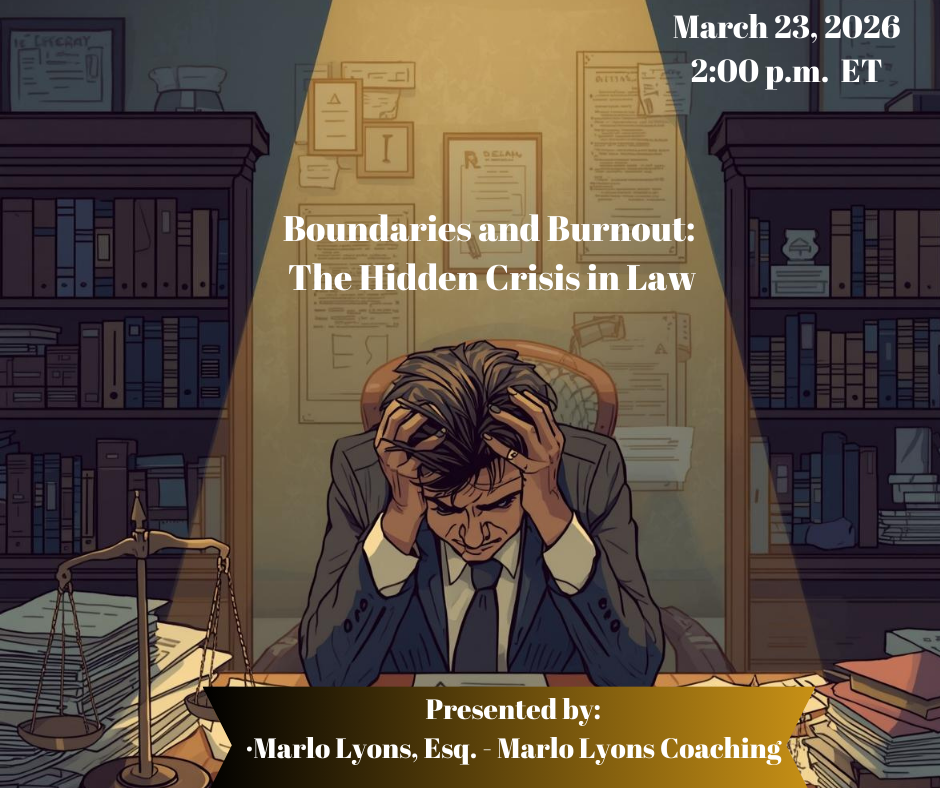
Boundaries and Burnout: The Hidden Crisis in Law is a 60-minute California MCLE Competence Credit pr...

This course clarifies the distinction between profit and cash flow from a legal perspective. Attorne...
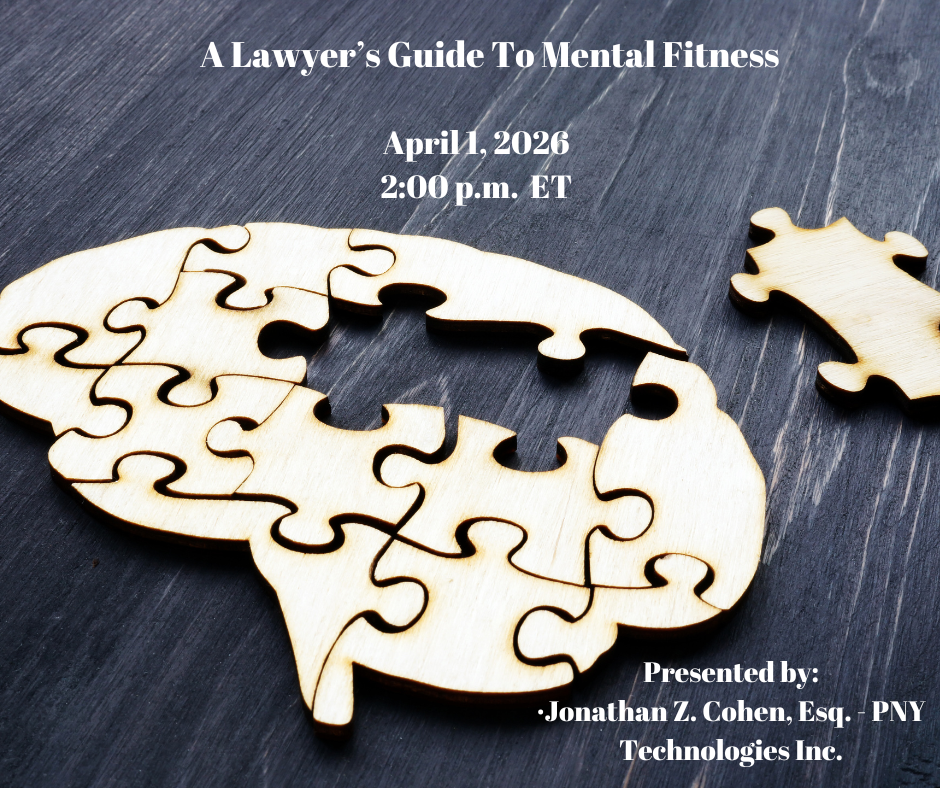
‘A Lawyer’s Guide To Mental Fitness’ is a seminar designed to equip professionals ...
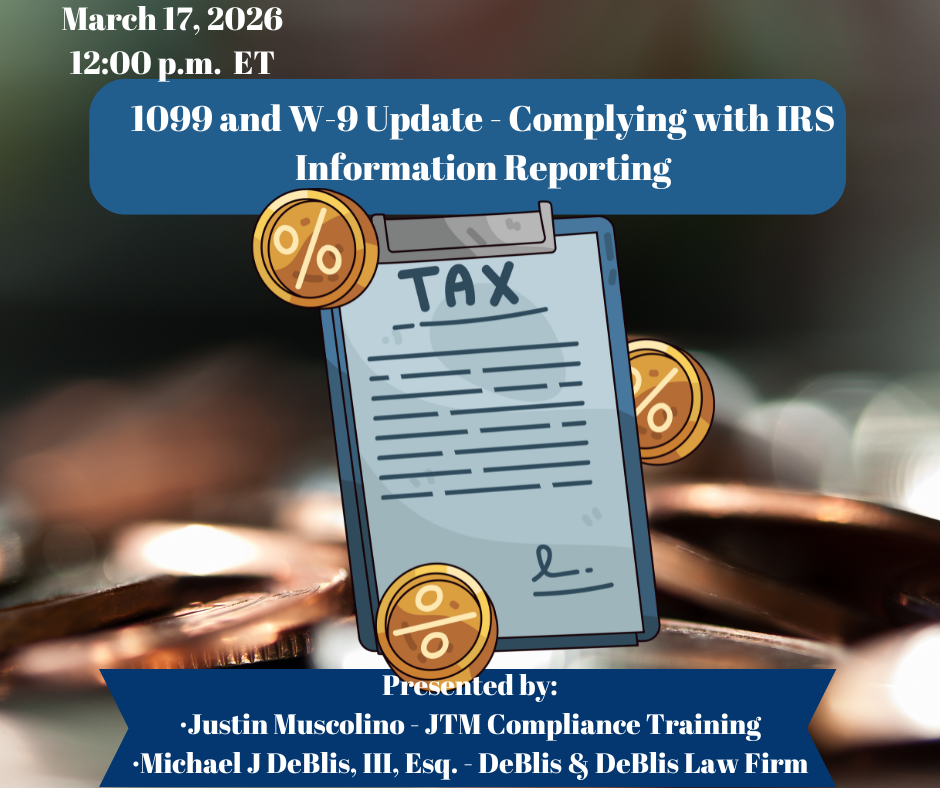
This CLE program covers the most recent changes affecting IRS information reporting, with emphasis o...
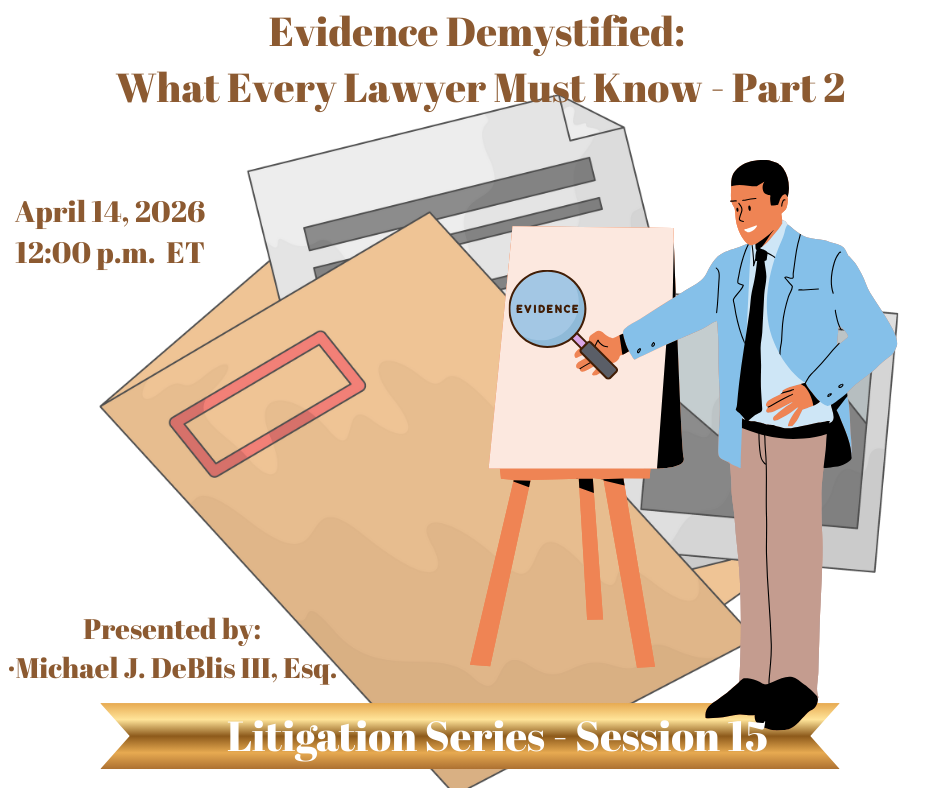
Evidence Demystified Part 2 covers key concepts in the law of evidence, focusing on witnesses, credi...
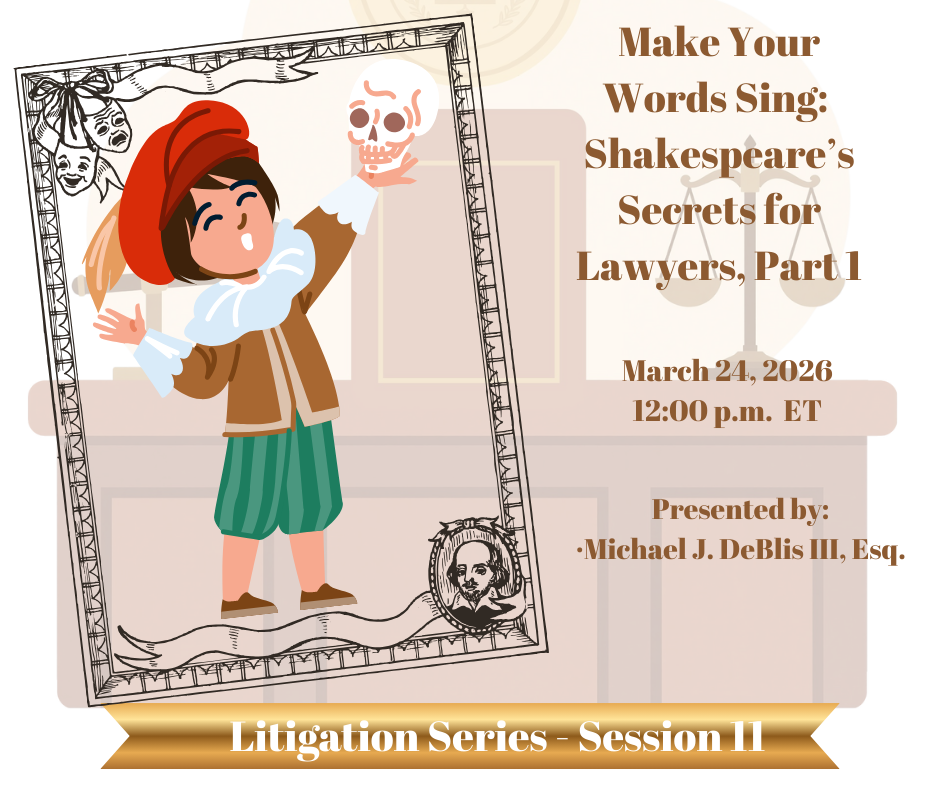
This Shakespeare?inspired program illustrates how Shakespearean technique can enrich courtroom advoc...
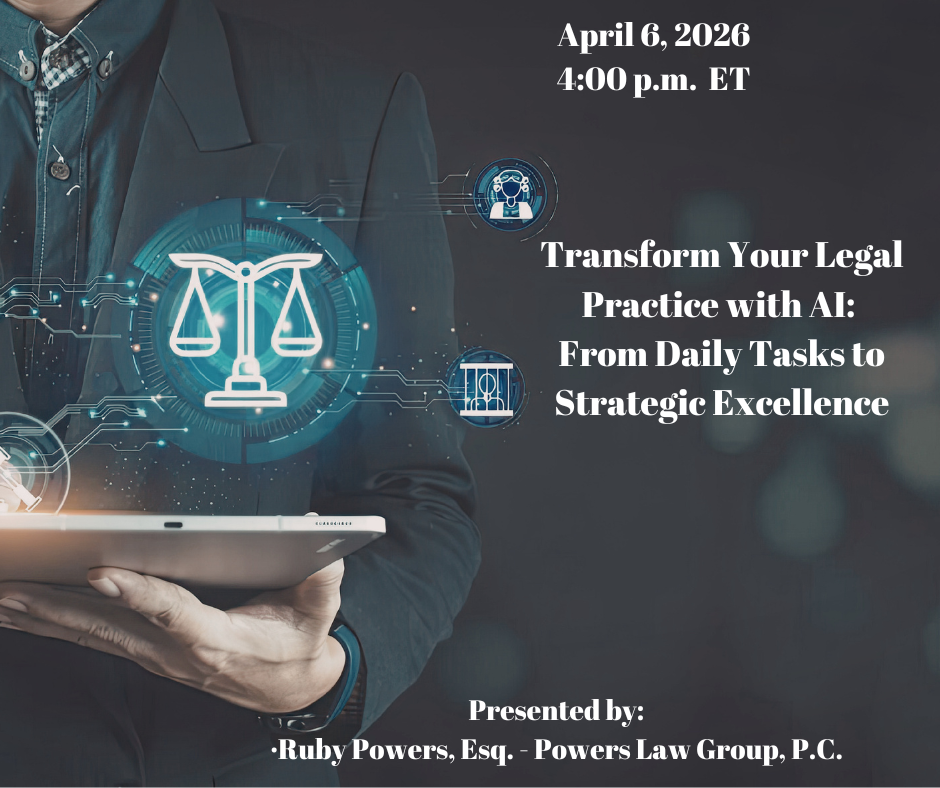
This course provides a strategic roadmap for attorneys to transition from administrative burnout to ...
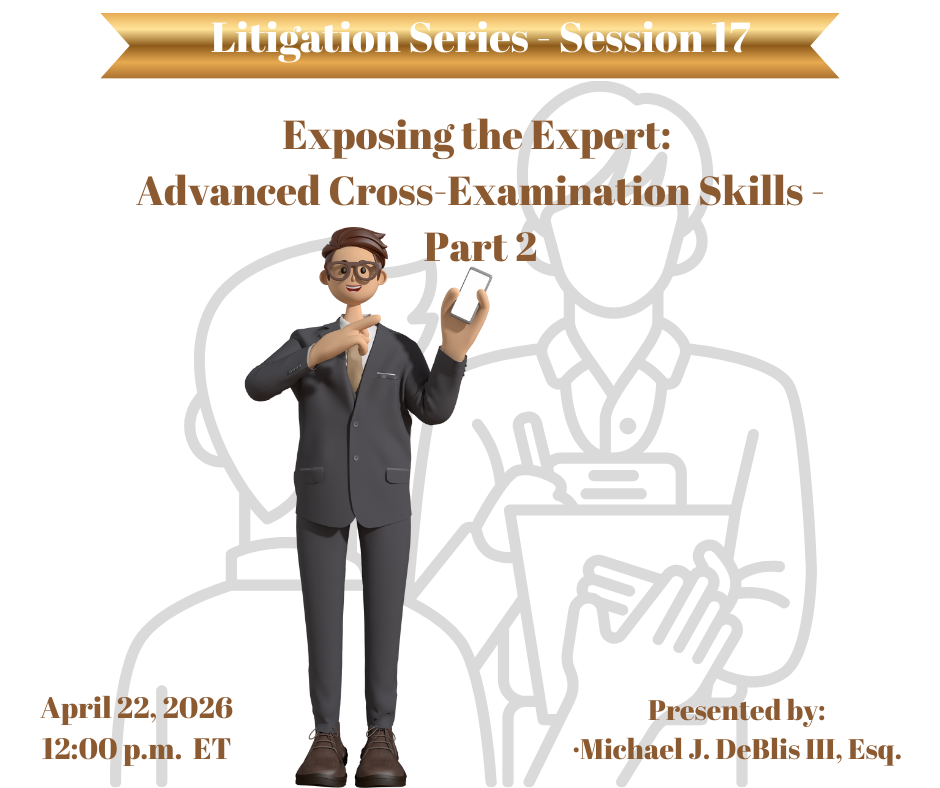
Part 2 - This program will continue the discussion from Part 1 focusing specifically on cross?examin...
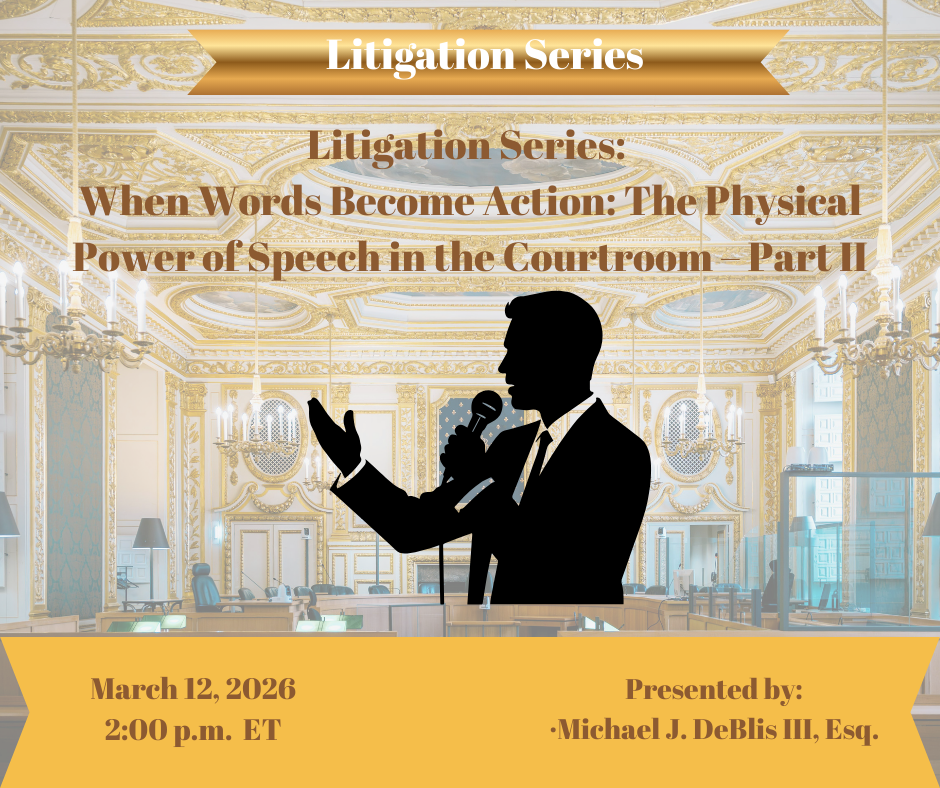
Part II builds on the foundation established in Part I by examining how classical rhetorical styles ...